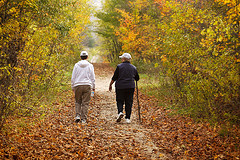 Most Americans are far more careful when they travel overseas than when they travel domestically, but there are a number of health concerns within our borders that can lead to serious illness. In addition, as the recent tragic death of freestyle skier, Sarah Burke, has made clear, accidents can happen anywhere and those accidents can be very, very expensive.
Most Americans are far more careful when they travel overseas than when they travel domestically, but there are a number of health concerns within our borders that can lead to serious illness. In addition, as the recent tragic death of freestyle skier, Sarah Burke, has made clear, accidents can happen anywhere and those accidents can be very, very expensive.
Some of the more common dangers travelers experience, however, are diseases such as the following:
- Rocky Mountain Spotted Fever – most common in the Southeast and South-Central regions (particularly in Arkansas, North Carolina, Oklahoma, Missouri, and Tennessee), this is a tick-borne illness that occurs primarily in Spring and Summer. Immediate treatment with antibiotics can prevent progression of the disease and the potentially fatal outcome, but early detection is typically hard.
- Lyme Disease – the country’s most common tick-related illness, Lyme Disease occurs usually in the Northeast and Mid-Atlantic states as well as northern California. Early treatment with antibiotics can lead to full recovery, but the initial symptoms resemble the flu.
- West Nile Virus – transmitted by mosquitoes, most cases of West Nile go undetected as there are usually no symptoms. When and if symptoms do begin, there is little to do but wait it out. Some cases get sever and require hospitalization. Outbreaks can occur anywhere mosquitoes are active.
- Influenza – because the flu is easily transmitted in confined spaces (such as airplanes and trains), and because the strains change and adapt, this respiratory illness is a seasonal menace and sometimes kills those affected.
- Traveler diarrhea – one of the most common travel diseases, it’s associated with severe vomiting, fever and abdominal pain. Sometimes due to bacterial causes, such as Salmonella, or viral causes, such as norovirus, or parasitic causes, such as Giardia, this is a highly common problem.
Prevention for these common US-based diseases includes:
- Wearing insect repellent
- Examining yourself and others for ticks after outdoor activities
- Annual flu vaccines
- Good hygiene: washing your hands thoroughly and often, cooking food properly, and peeling or washing produce
- Avoiding untreated or unsafe water
If you are traveling in the U.S. from another country, it’s important to have travel medical insurance in case you have to visit a medical clinic, or worse, you have to be medically evacuated to a hospital for care.
If you are a U.S. citizen, check your health insurance plan to find out whether you will be paying out-of-pocket costs if you experience a medical emergency where you are traveling.
